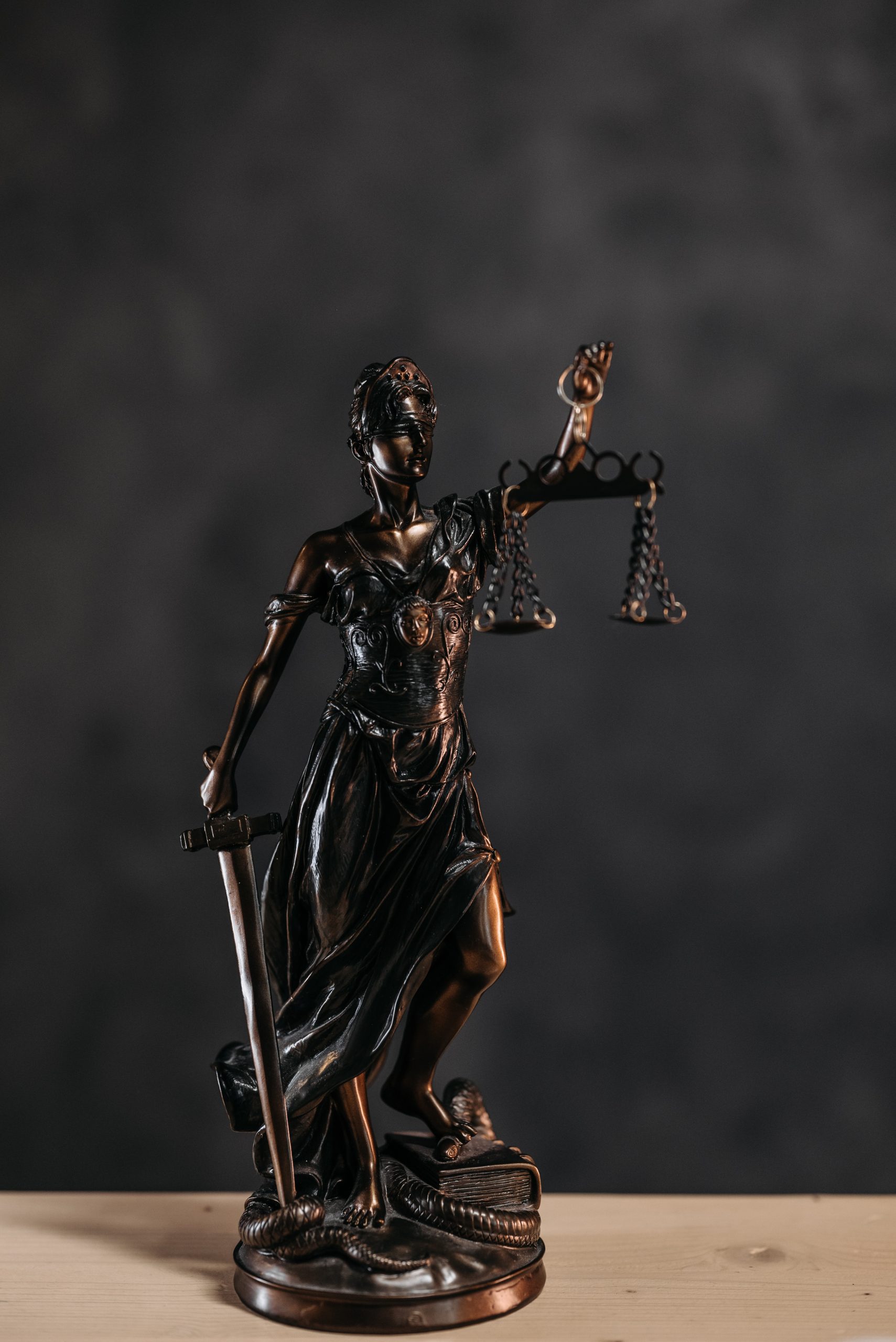When it comes to matters of estate planning and probate in Provo, Utah, you need the expertise and guidance of a qualified probate attorney. With the complexities and legal intricacies involved in these processes, it is essential to have a reliable legal professional by your side to ensure a smooth and efficient resolution. At our law firm, we understand the challenges individuals and families face during these times, and we are dedicated to providing exceptional legal services tailored to your unique needs. With our comprehensive knowledge and experience in probate law, we are committed to assisting you with professionalism and integrity every step of the way. Don’t navigate the probate process alone – contact our Provo probate attorney today to ensure your rights and interests are protected.
What is Probate?
Probate is the legal process through which a deceased person’s assets are transferred to their beneficiaries or heirs. It involves proving the validity of the deceased person’s will, paying off any debts and taxes owed, and distributing the remaining assets as directed by the will or state law. Probate is typically overseen by a probate court and can be a complex and time-consuming process.
Definition of Probate
Probate is a legal process that involves proving the validity of a deceased person’s will, administering their estate, paying off debts and taxes, and distributing the remaining assets to beneficiaries or heirs.
Purpose of Probate
The purpose of probate is to ensure that a deceased person’s assets are distributed according to their wishes, as stated in their will. It provides a legal framework to settle the deceased person’s affairs, resolve any outstanding debts, and transfer ownership of assets to their beneficiaries.
Probate Process
The probate process typically involves several key steps. First, the will is filed with the probate court and authenticated. Then, an executor or personal representative is appointed to administer the estate. The assets are inventoried, appraised, and managed during the probate process. Debts and taxes are paid off, and the remaining assets are distributed to the beneficiaries as directed by the will or state law.
Why Do You Need a Probate Attorney?
While it is possible to navigate the probate process without an attorney, there are several reasons why it is beneficial to hire a probate attorney.
Complexity of Probate Laws
Probate laws can be complex and vary from state to state. Understanding and navigating these laws can be challenging for those without legal expertise. A probate attorney has a deep knowledge of probate laws and can guide you through the process, ensuring that all legal requirements are met.
Avoiding Mistakes and Delays
Probate involves a significant amount of paperwork, deadlines, and court appearances. Making mistakes or missing deadlines can result in costly delays or even legal consequences. A probate attorney can help you navigate the process efficiently, minimizing the risk of errors and delays.
Minimizing Estate Taxes
A probate attorney can help you understand and minimize the impact of estate taxes on the deceased person’s estate. They can advise on strategies to reduce estate tax liability, such as establishing trusts or gifting assets during the person’s lifetime.

Choosing a Probate Attorney
When choosing a probate attorney, it’s important to consider their experience, reputation, and communication style.
Experience and Expertise
Look for a probate attorney with extensive experience in handling probate cases. They should have a deep understanding of probate laws and procedures and be familiar with the local probate court system. Proper research and ensuring past success rates is a must.
Reputation and Track Record
Consider the reputation of the probate attorney and their track record of success. Look for testimonials from past clients and check for any disciplinary actions or complaints against the attorney. A reputable and trustworthy attorney is essential in handling important legal matters.
Communication and Trust
It is important to have good communication with your probate attorney. They should be responsive to your questions and concerns and keep you informed about the progress of your case. Trust is also crucial, as you will be relying on the attorney to navigate the probate process on your behalf.
Services Offered by a Probate Attorney
A probate attorney offers a range of services to assist clients in estate planning, will and trust creation, and probate administration.
Estate Planning
A probate attorney can help you create an estate plan that reflects your wishes for the distribution of your assets after your death. They can assist with drafting a will, establishing trusts, and naming beneficiaries for various assets.
Will and Trust Creation
A probate attorney can help you draft a legally valid will, ensuring that your assets are distributed according to your wishes. They can also help create trusts, which can provide additional benefits such as asset protection and tax planning.
Probate Administration
If you have been appointed as an executor or personal representative of an estate, a probate attorney can guide you through the administration process. They can help with tasks such as filing the necessary paperwork, managing assets, paying debts and taxes, and distributing assets to beneficiaries.

Navigating the Probate Process
The probate process involves several key steps that must be followed to ensure a smooth and efficient administration of the estate.
Filing the Petition
The first step in the probate process is filing a petition with the probate court. This petition requests that the court validate the deceased person’s will and appoint an executor or personal representative to administer the estate.
Inventorying and Appraising the Estate
Once the executor or personal representative is appointed, they must inventory and appraise all the assets of the estate. This includes identifying and valuing real estate, bank accounts, investments, personal property, and any other assets owned by the deceased person.
Notifying Creditors and Beneficiaries
The executor or personal representative is responsible for notifying creditors of the deceased person’s death and the probate proceedings. Creditors then have a certain period of time to submit claims against the estate for any outstanding debts. Additionally, beneficiaries named in the will must be notified of their rights and the upcoming distribution of assets.
Disputes and Litigation in Probate
Unfortunately, disputes can arise during the probate process, leading to litigation. Here are some common types of disputes in probate.
Will Contests
A will contest occurs when a beneficiary or interested party challenges the validity of the deceased person’s will. This can be based on allegations of fraud, undue influence, lack of capacity, or improper execution of the will.
Estate Tax Disputes
Disputes related to estate taxes may arise if the IRS disputes the valuation or classification of certain assets, resulting in a higher estate tax liability. A probate attorney can help resolve such disputes and minimize the impact of estate taxes.
Beneficiary Disputes
Beneficiary disputes can occur when there are disagreements or conflicts among beneficiaries regarding the distribution of assets. This can be caused by unequal distribution, ambiguity in the will, or allegations of misconduct by the executor or personal representative.
Frequently Asked Questions
Here are the answers to some commonly asked questions about probate.
How long does probate take?
The duration of the probate process can vary depending on various factors, including the complexity of the estate, the presence of disputes, and the efficiency of the probate court. On average, probate can take anywhere from several months to a few years to complete.
Do all estates go through probate?
Not all estates go through probate. Small estates with a total value below a certain threshold, as determined by state law, may be eligible for simplified probate procedures or may bypass probate altogether. Additionally, assets held in trusts or owned jointly with rights of survivorship do not typically go through probate.
What happens if there is no will?
If a person dies without a will (intestate), the state’s intestacy laws will determine how their assets are distributed. Generally, the estate will be divided among the deceased person’s closest living relatives, such as spouses, children, or parents, following a predetermined hierarchy.
Cost of Hiring a Probate Attorney
The cost of hiring a probate attorney can vary depending on factors such as the complexity of the estate, the attorney’s experience, and the fee structure.
Hourly Rate
Some probate attorneys charge an hourly rate for their services. The hourly rate can vary significantly depending on the attorney’s experience and location. It is important to clarify the attorney’s billing practices upfront and estimate the total cost of their services.
Flat Fee
Many probate attorneys offer flat fee arrangements for certain services, such as drafting a will or assisting with the probate process. With a flat fee arrangement, you know upfront how much the attorney’s services will cost, providing cost certainty and transparency.
Contingency Fee
In some cases, a probate attorney may work on a contingency fee basis, where they receive a percentage of the value of the estate or the amount recovered in a dispute or litigation. This fee structure can be beneficial if you are unable to afford upfront legal fees.

Client Testimonials
Here are some testimonials from our satisfied clients who have benefited from our probate services:
-
“The probate attorney at XYZ Law Firm guided me through the complex probate process with professionalism and expertise. They handled all the paperwork, ensured all legal requirements were met, and made the whole process much easier for me.” – John D.
-
“I highly recommend XYZ Law Firm for probate matters. Their knowledgeable attorneys provided excellent guidance, communicated effectively, and secured a positive outcome for our estate administration. They truly understand the intricacies of probate law.” – Sarah W.
About Our Law Firm
XYZ Law Firm is a reputable law firm based in Provo, Utah, with a focus on probate law. We have been serving clients in the area for over 20 years, providing comprehensive legal solutions for estate planning, will and trust creation, and probate administration.
History and Background
XYZ Law Firm was founded in 1999 by John Smith, a highly experienced probate attorney. Over the years, we have established ourselves as a trusted name in the Provo legal community, known for our expertise, integrity, and dedication to our clients.
Our Team
Our team consists of experienced attorneys who specialize in probate law, supported by a skilled and dedicated staff. We work collaboratively to provide personalized and effective legal solutions to our clients, ensuring their needs and objectives are met.
Our Mission
Our mission is to provide high-quality legal representation to our clients, guiding them through the intricate probate process and helping them achieve their desired outcomes. We prioritize clear communication, attentive service, and a commitment to achieving the best possible results for our clients.
With our expertise and dedication, we are ready to assist you with all your probate needs. Contact XYZ Law Firm today to schedule a consultation with one of our experienced probate attorneys.